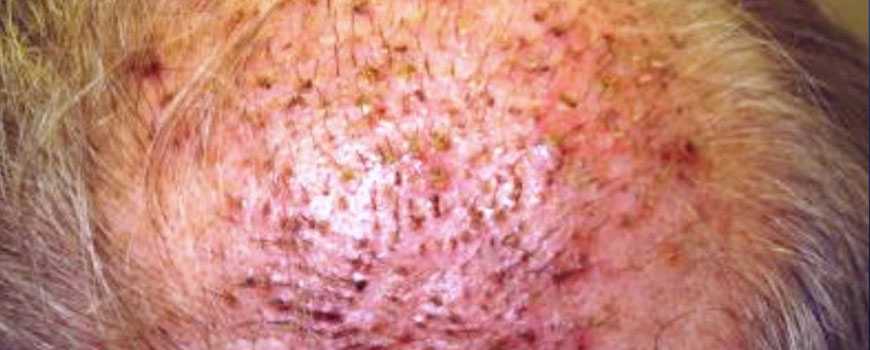Can a Hair Transplant Become Infected?
Even though hair transplant surgeries may not be as invasive as other cosmetic surgeries, you always run the risks of side effects. Any time you cut into the skin to perform an operation there’s a chance that the wound could become infected, no matter how small. So, while the areas where hair follicles were excised from and placed into the scalp are small, there is still a chance of infection after a hair transplant.
Hair transplant procedures have come a long way over the years. No longer are patients ending up with the dreaded “hair plug” look that most people remember from the 1970’s and 1980’s, but rather a much more natural look and feel. Because of all of the advancements made in technique, technology, and the procedure itself, we are able to better control the results of the surgery as well as minimize any side effects that you may endure.
However, regardless of how well a procedure goes, or how up to date the technology assisting the surgeon is, it’s important to listen to your doctor’s advice regarding post-op care.
How Can a Hair Transplant Become Infected?
The most important thing to know is that once your scalp has healed from the procedure, you are no longer at risk of infection.
Any cut, scrape, or open wound on your body is prone to infection if not properly cleaned and cared for. This pertains to accidents and surgeries alike. With surgeries, your doctor will be well versed in what their patients will go through after undergoing the procedure, so they have a better understanding of the proper recovery process.
You should always follow your doctor’s recommendations when it comes to post-op recovery and care. They know what they are talking about and only have your best interests in mind. Failure to follow their advice could lead to the hair transplant failing, infection, or other complications.
When talking about hair transplants, the rate of post-op infection is very low, but not zero. Infection after hair transplant surgery is usually due to improperly cleaning of the hair or unsanitary conditions post-op.
To help prevent infection after a hair transplant you should:
- Refrain from touching the donor area of your scalp other than when you apply your antibiotic ointment twice daily as instructed.
- Avoid disturbing the grafts with your fingers, brush/comb, or other activities while they are healing in the first 7-10 days.
- Do not pick at scabs that may appear on your scalp in the donor or recipient areas.
- Avoid alcohol and smoking while recovering.
- Limit your exercise. Normal sweating will NOT harm the grafts but strenuous exercise should be avoided for 10-14 days.
- Follow your doctor’s post-op cleaning and care instructions.
- Most importantly, go to your follow-up appointments with your doctor.
In most cases infection after a hair transplant is relatively minor and can be easily treated with medication. These types of infections, if they are caught early, will clear up with no further complications to the surgery itself.
Knowing what to look for when it comes to infection can be the difference between a minor issue and a more major complication so it’s important to know what to look for.
Signs of Hair Transplant Infection
While any sort of major discomfort after the surgery should be discussed with your doctor, there are some things you can keep an eye out for regarding possible infection.
- Pain and Swelling – Some pain and swelling is to be expected after any surgical procedure, but if those symptoms seem to be getting worse and not better as things are supposed to be healing, it’s time to call your doctor.
- Excessive Redness or Discoloration can also be a sign that something isn’t quite right.
- Puss drainage is not a normal side effect of the surgery you should be experiencing. If you notice puss oozing from the donor areas or the transplanted areas, please consult your doctor.
- Itchiness or Burning – It’s VERY common to experience some itchiness as the scalp is healing, but anything excessive, or anything that feels like painful burning should be reported to your doctor and examined.
Hair Transplant Infection
Dr. Krejci is happy to report that in her office, infection after a hair transplant procedure is extremely rare, but it can happen. If you start to notice that your scalp isn’t starting to heal after a week or you’re experiencing any of the above issues, please make sure to reach out to your doctor.
You should always look for a doctor who has had experience in this type of procedure, and in doing so, they should have a good understanding of the post-op process. They will be able to tell you if what you’re experiencing is normal or if you should come in to be evaluated.
While rare, infection after this type of surgery can lead to other complications that could affect the end result of your hair transplant. Since we want you to have the best outcome possible from your hair transplant, be sure to follow the post-op care instructions but don’t be afraid to speak up and tell us if you think something is wrong. Identifying an infection after hair transplant surgery is best dealt with sooner rather than later. We want to make sure every last one of those hairs that was implanted has the best chance to grow!





